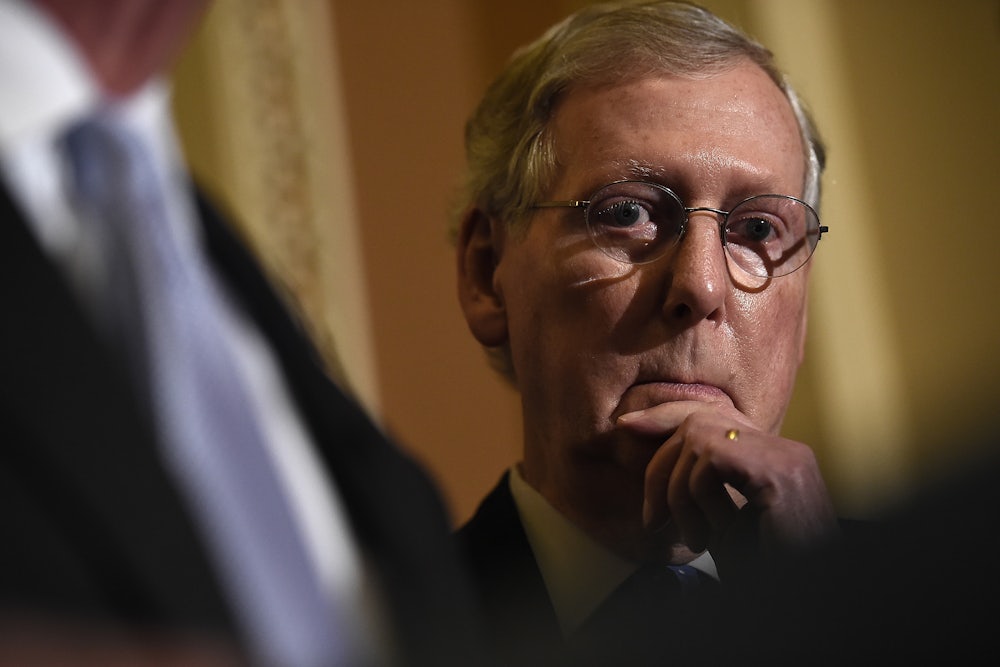The Senate majority leader is in a curious position. In an increasingly partisan Senate, McConnell is hardly an ideologue—instead, he has consolidated power by forging crafty alliances designed to make and hold on to incremental power gains. His career has been defined, more than anything, by political expedience. But a number of Senate Republicans are now openly defecting from the plan to repeal and delay the replacement of Obamacare largely for pragmatic reasons—disrupting the insurance industry, which makes up a significant portion of the economy, and removing health insurance from 20 million Americans, they wager, will not serve them well.
As of Monday night, Rand Paul, Susan Collins, Tom Cotton, Lamar Alexander, Bob Corker, Rob Portman, Bill Cassidy, and Lisa Murkowski—all Republicans—have said that, at the very least, they are skeptical of McConnell’s “repeal and delay” strategy. Already, McConnell and Paul Ryan have caved a bit, saying that, while they plan to push ahead with repeal, they may include some “replacement provisions” in the repeal bill. Per Politico, “One option being considered for the repeal bill is to expand the use of health savings accounts and allow states to set up high-risk pools for chronically sick patients. Republicans are also planning to take up less controversial replacement bills as soon as repeal passes and are discussing an effort to unite the party around a set of health-care principles before the repeal vote.”
But this won’t quite assuage the concerns of Republicans who are getting cold feet. They want to make sure that none of Obamacare’s most popular provisions are lost and that no one who has health insurance loses it during the repeal process.
Over the last eight years, McConnell has often proved to be a master of these moments. But McConnell is now presiding not just over a Senate majority, but a majority in a unified Republican government. He excelled at playing defense during the Obama years, but now he’s finally going to be forced to choose between political expedience and ideologically driven changes that are sweeping and risky. So far, McConnell seems to be trying to split the difference. And it isn’t working.
